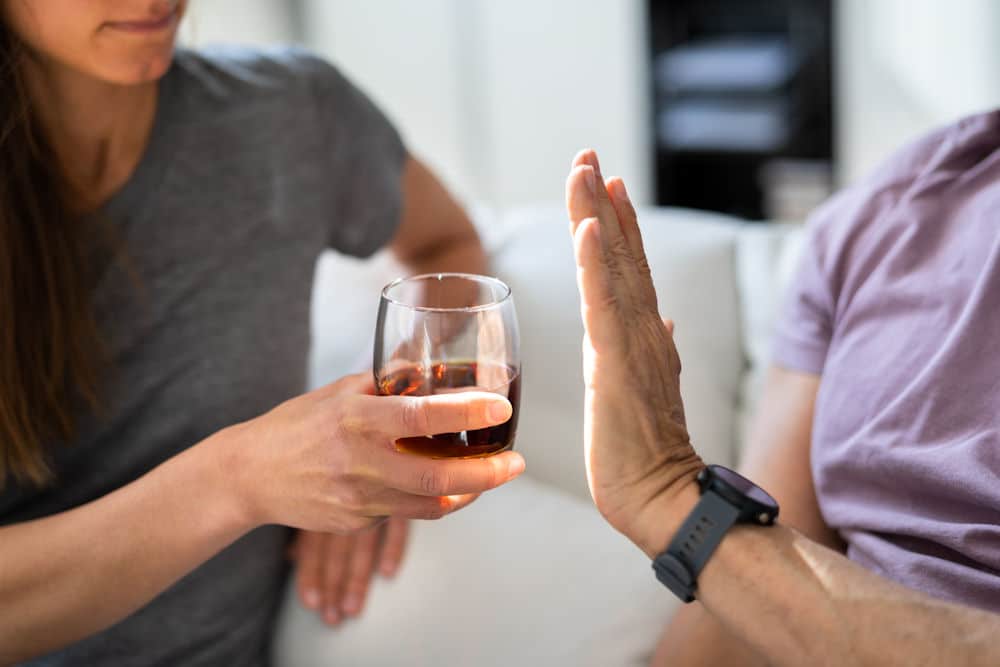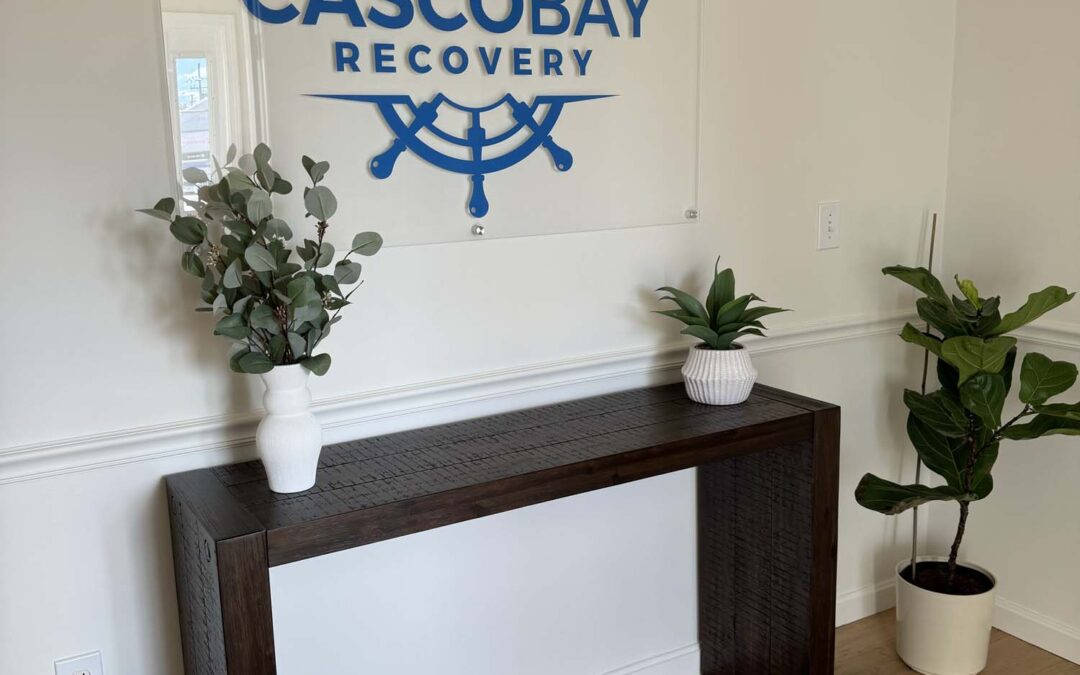There can be stretches of time while in recovery where you find it difficult to manage your addiction triggers. Luckily, A caring addiction treatment professional at Casco Bay Recovery is ready to be your go-to support throughout the process of recovery. Knowing your addiction triggers and heeding to the tips on how to deal with them in this piece can guide you to happier days in recovery. Learning to deal with your addiction triggers is one of the largest pieces of the puzzle to gaining the joys of sober living.
You can manage and take control of your addiction triggers easier than you think. But doing so alone will only discourage you to sink deeper into addiction. Recovery programs will instill the confidence and encouragement to deal with your strongholds.
One of the greatest discouragements one can have is the feeling and thought that you are alone in your attempts to achieve recovery from substance addiction. With Casco Bay Recovery, you don’t have to be alone in recovery though as we provide trained addiction treatment specialists that will assist you in every stage of your recovery journey. The necessary support of a trained specialist is what opens your eyes to realizing that you are not alone in your struggle.
What are Addiction Triggers?
The term “trigger” refers to any emotion, event, or circumstance that stimulates the desire to indulge in something. Thus, an addiction trigger is anything that stimulates the desire to indulge in substance abuse.
Addiction triggers are unique to each individual and can be just about anything. Many triggers disguise themselves beneath everyday emotions. As a result, your negative thoughts and emotions about people, places, things, and situations often trigger impulsive and addictive actions without a second thought.
That’s why the most intricate first step in your recovery from substance addiction is to identify your addiction triggers. One can do this through a medical evaluation. When determining your addiction triggers by way of a medical evaluation, your physician will then chart the most effective course of recovery.
What are the Most Common Addiction Triggers?
Though everyone’s addiction triggers are different, there are some common patterns to identifying them. Though the following are the most common addiction triggers, understand they are not limited to these basic trends. This is not a self-diagnosing tool, but a guide to feed your therapist with the most accurate information when it comes to your triggers in recovery. Identifying your underlying addiction triggers is ground zero to resolving your addiction struggles completely.
Stress/Anxiety
Perhaps the most common addiction trigger is stress. The addictive personality caused by chemically-altered substances can make indulging in drugs or alcohol a natural response to stress. Stress is also among the primary causes of relapse around the world. Thankfully modern therapy has many methods to treat stress and anxiety from personal training to over-the-counter prescription medications. Stress and anxiety addiction triggers can be managed, but not without medical aid.
Guilt or Regret
Past regret or a guilty conscience has driven many to alcohol and drug addiction. Whether it’s survivor guilt from a traumatic life experience or regretting a life decision, these discouraging emotions can drive individuals to crave a substance-induced escape from their current reality.
Dealing with regret or guilt in such a manner can cause further mental inhibitions and create an even more dangerous circumstance. The deeper the regret, the deeper the addiction can often be once one starts abusing substances to cope. Abusing substances can worsen the emotion of guilt though, causing a person to be reckless and in the wrong state of mind.
Depression
Depression could be considered the advanced result or progressive result of guilt exacerbated by substance abuse. Correlative studies have even found substance abuse to be one of the leading causes of depression.
A depressive mindset is often an addiction trigger that leaves you feeling a desperate desire to escape sadness at any cost. Just bear in mind, that regardless of what your chemically-dependent mind may tell you, studies have proven substance abuse to worsen depression.
Loneliness
Substance abuse and loneliness are potentially dangerous combinations that can lead to fatal consequences. Leaving substance-dependent individuals to themselves does more harm than good. Thus, it is vital for one’s safety not to allow a substance abuser to be alone. If you or someone you love is experiencing loneliness with a coinciding substance use disorder, addiction triggers are likely to be more prevalent.

How to Deal with Triggers in Recovery
Ever wondered how to deal with triggers while in treatment and recovery? Well, managing addiction triggers is an achievable feat with therapeutic assistance. Attempting to learn how to deal with triggers on your own is a dangerous decision without the proper medical training though. Especially if prescription medications are required to help you manage your withdrawal symptoms.
Stopping substance abuse and trying to manage your addiction triggers on your own can cause you permanent health consequences, including death. Thus, it’s highly advisable to have a trained therapist administer the following trigger and withdrawal management methods while in recovery.
Exercise
The greatest way to naturally stabilize your neuronic frequencies is exercise. Because addiction triggers are a result of substance-induced neuronic imbalances, exercise aids in reestablishing a healthy chemical medium. Walking, running, or strength training are all effective methods to begin the mental healing process. A Casco Bay Recovery specialist can devise an exercise plan geared toward treating your addiction triggers.
Sleep
Sleep is the most important health benefit for your body. This is true not just for addiction recovery, but for everyday overall health. When you sleep, your body rejuvenates and repairs your unseen bodily deficiencies. Because substance abuse deprives you of REM sleep, medications may be necessary to give you the proper sleep your body needs. Some individuals need a physician to administer to them a proper sleep schedule along with prescription sleep aids to help them manage their health and addiction triggers.
Support Teams
Loneliness in recovery is a large reason why many fail in maintaining their sobriety. Having the proper sympathetic therapist and recovery team is a good start to building up your support group team. The more positive support that you have, the easier it will be to achieve your sobriety goals. Keeping friends, family, and therapists close while in recovery from substance addiction is your most powerful tool for maintaining a sober life.
Proper Hydration
One of the continuous keys a therapist will institute in your life is proper hydration methods. Water provides the proper nutrients your body needs to maintain a healthy body balance throughout. Establishing proper water intake is a fundamental habit that sets the tone for you to properly manage your addiction triggers and achieve a successful recovery. Dehydration, on the other hand, can have opposite effects and perhaps even magnify your triggers in recovery.
Balanced Diet
When you first stop abusing substances, you may experience increased appetite and a craving for unhealthy meals. One surprising fact is that giving in to those unhealthy eating habits actually has the opposite effect on your addiction triggers. Thus, instead of satisfying your cravings and helping you manage your addiction triggers, eating unhealthy while in recovery will only continue to make you unhealthy, which will, in turn, trigger you to want to use substances more.
You can actually win the chemical war with your body of wanting to eat unhealthy by having nutritional-based meals. Maintaining a balanced diet is a lesser-known effective natural method of fighting addiction.
When recovery begins, your body may go through substance abuse withdrawals and magnify your addiction triggers. This is where therapeutic assistance can be your greatest asset. By giving you the tools to establish and maintain a balanced diet while in recovery that you can enjoy.
Adopt a Hobby
At the intersection where therapy begins and substance abuse ends, adopting a hobby can make recovery a seamless transition. It’s always fun to do something you love or always wanted to do on a more frequent basis. Many who adopt an enjoyable hobby in recovery find it to be among the most calming and therapeutic exercises. With a hobby to occupy the time that substance abuse once occupied, your mind can be freed from your strongholds and addiction triggers.
Meditation and Music
Meditation exercises can help you find a calming medium. For example, exercises that incorporate meditation and music in them such as aerobics and yoga techniques can give you control of your addiction triggers. Furthermore, meditation methods encourage clarity of thought. Meditation methods can also help reverse elevated anxiety and stress levels caused by substance abuse.
Therapy
Therapy provides the support, care, and structure that one needs to maintain recovery from substance addiction. Having a trained therapist especially helps people manage their addiction triggers in recovery. That’s because a therapist makes many of the trigger management techniques easily accessible. Call Casco Bay Recovery today to determine what therapy approach that you should take on to help you manage your addiction triggers.
Medication
In some rare cases of addiction, medications may be necessary to balance the brain waves that cause chemical dependency. Overstimulation of the pleasure center can cause one to require certain medications to help kick-start neuronic stabilization. Though this would be considered the most extreme method of dealing/ treating addiction triggers, talk to your doctor if you feel it’s necessary. All medication-based treatment for addiction and addiction recovery is short-term and should be heavily monitored.
The Key to Your Sobriety
The common denominator of all of these factors lies in the hands of a trained physician. Casco Bay Recovery has all the tools that you need to help you achieve and maintain your sobriety. A compassionate therapist here at Casco Bay Recovery is waiting to equip you with these tools. That way you can learn how to deal with triggers and achieve and maintain recovery.
Every moment that you wait to get sober and learn how to manage your addiction triggers is another moment spent as an addict. This article is your open door to the recovery path that you need. All you need to do is contact us here at Casco Bay, and we will help you achieve recovery, discover your addiction triggers, and learn how to deal with triggers of addiction.
Your health, your joy, and your sobriety are waiting for you on the other side of that open door. All you have to do is walk through it. To learn more about Casco Bay and how we can help you achieve and maintain recovery from addiction, contact us today.








